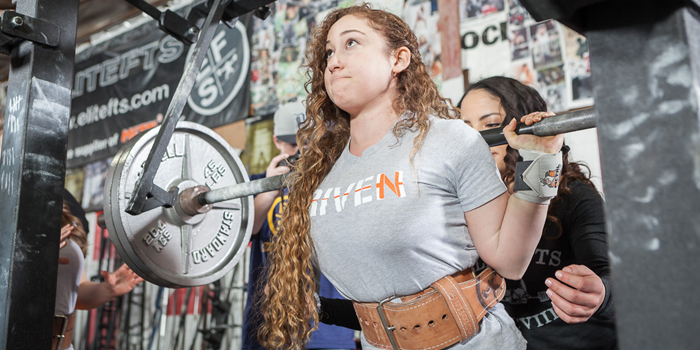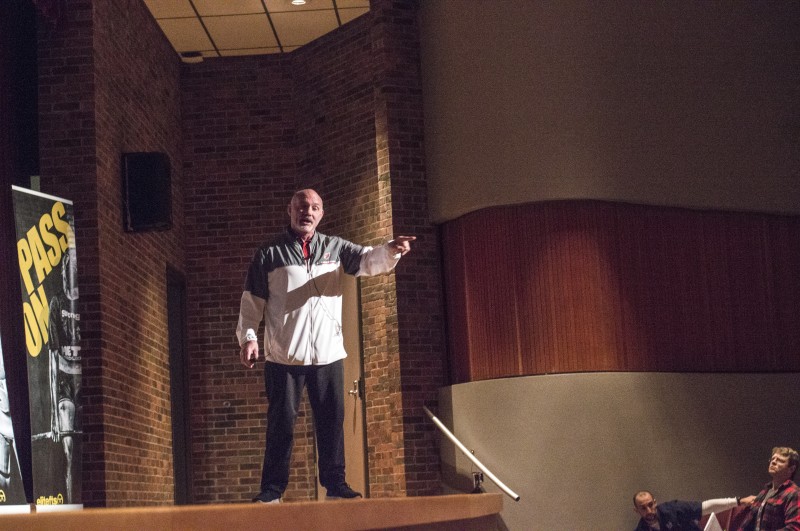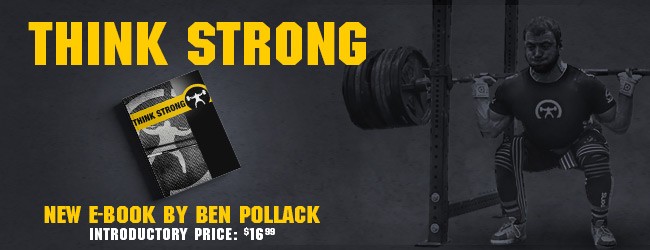
A few weeks ago, elitefts held its annual Sports Performance Summit. If you weren’t there, you really missed out. Of the five speakers, three were NFL coaches (Buddy Morris of the Cardinals, Justus Galac of the Jets, and Mark Uyeyama of the 49ers), and the two others were world-renowned doctors in the areas of nutrition and sports medicine (Dr. Eric Serrano and Dr. Ken Kinakin). Despite currently working in the field of muscle biology, which is very much basic science, I still walked away from the day knowing infinitely more than when I had arrived. The day was filled with tons of living, learning, and passing on; all of which Buddy Morris, the opening speaker, embodied. If you don’t know who Buddy Morris is, I suggest you crack open Google and type in his name, “Coach X”, or “head strength coach of the Arizona Cardinals” to get the basics.
RECENT: The 2017 elitefts Sports Performance Summit in Review
To me, Buddy Morris is one of the first people I really looked up to, not just as a strength and conditioning coach but also as a person. For those that have perhaps forgotten, strength and conditioning is my grassroots. But, I won’t bore you with those details. Instead, I’m going to leave you with some Buddy one-liners* from this weekend that inspired me, so that perhaps I can pass along his words of wisdom for those of you that didn’t have the chance to attend.
“Two factors that influence everything: genetics and environment.”
Genetics give some people advantages and others disadvantages; that’s just how it goes. However, environment also plays a huge role. You could be the most talented weightlifter in the world, but if you happen to grow up thinking running is the greatest thing ever, would it matter? If you haven’t read it, pick up the book “Outliers” by Malcolm Gladwell. The book is about how environmental factors, conditions, and circumstances impact success more than individual traits and characteristics. In the book, Malcolm also talks about the 10,000-hour rule, in which 10,000 hours of practice are required to achieve mastery in any field or area. So I’m with Buddy: genetics and environment have a hand in influencing nearly everything.
“Musical Chairs is like this nowadays: 30 chairs, 30 kids, and we talk about our feelings after the music stops and we all sit down.”
I’ve been waiting for someone to make a comment like this for too long. Kids seem to be growing up in a soft world. Today, it seems like everyone is treated like a winner and everyone gets a trophy. While some people think this is great, I think it is the worst thing ever. I think it kills competition and teaches children that participation is “enough” to succeed in the real world. But it’s not. Sometimes in life you show up, work hard, and still don’t win. If we want to teach the youth to be resilient, we can’t give trophies and “chairs” to everyone that signs up for Pee Wee Football. Just saying — and apparently so was Buddy.
“I don’t want to be an expert, I just want to learn.”
The dictionary defines an expert as, “a person who has a comprehensive and authoritative knowledge of or skill in a particular area.” In my opinion, the process of obtaining that kind of knowledge takes an immense amount of time, effort, and constant evolution. It takes a ton of learning. As a rule of thumb, I tend to be wary of self-proclaimed fitness/strength experts who spend most of their time talking about how awesome they are and why you should use their training method. Watching a true expert in athletic performance talk about how much he just wanted to learn was refreshing. This further substantiated my belief that experts don’t talk to talk; instead, they live (share wisdom), learn (from others), and pass on (their version of talking).
“…always bridge the gap between what science tells me and what I see.”
With the internet came the PubMed warriors, which I define as people who read abstracts and then make a bunch of widespread claims about how that translates to the best new ways to make “gains” or enhance performance. This can be dangerous since the translatability of someone’s scientific findings to your training is probably embedded in the methods section, not the abstract, of a paper. As a coach, athlete, or someone who is training, you have to take scientific findings with a grain of salt. You have to test them in your gym and think about how they apply to the things you see in yourself, your clients, or your athletes.
Good thing about bad training: at least you know what doesn't work.
I’ve seen a ton of program bashing floating around Facebook lately. It annoys the hell out of me, considering that the majority of the complainers are people with no real knowledge of the program/training system they are bashing. They have no “under the bar” or “in the books” knowledge of why that program is “bad.” They don’t share insightful wisdom about the program’s shortcomings; they just complain. When you meet coaches and trainers with true wisdom, they can talk to you about what they think is “bad training", because they have done this so-called “bad training” at some point (or have learned from others that have). Thus, rather than bashing “bad programs,” they provide detailed and real feedback about what’s “bad,” because they really know.
Periodization is a concept, not a plan.
I can’t tell you how many times I’ve seen head coaches stress getting through a periodized program, and refusing to change that program, no matter how worn-out or over-reached a team was. Similarly, I’ve seen many clients and athletes struggle through a planned training day out of an unreal fear that deviation from their planned program would result in massive strength and hypertrophy losses. Periodization, or the structured planning of training, is often thought of as some concrete plan. But, it shouldn’t be. It should be a framework, guideline, or abstract idea that loosely dictates how you train for something. It should be flexible enough to be readjusted when training adaptions go awry. Like Buddy said, it should be a concept, not a plan.
I train every day. I know I shouldn’t, but I do it to deal with stress.
This quote was just great. I can’t tell you how often people ask me why I train every day when I fully know I shouldn’t. The thing is, who decides why we should or shouldn't train every day? If the purpose of training is to achieve a goal, and your goal is to go through life without stress, then I’m pretty sure training every day helps accomplish that goal (even if it's not optimal for performance and fitness goals).
So there you have it, a summary of some of Buddy’s wisdom from that weekend, and what it means to me. Hopefully, it also means something to just a few of you!
*Above quotes are combinations of paraphrased and true quotations, from my notes of his talk.











